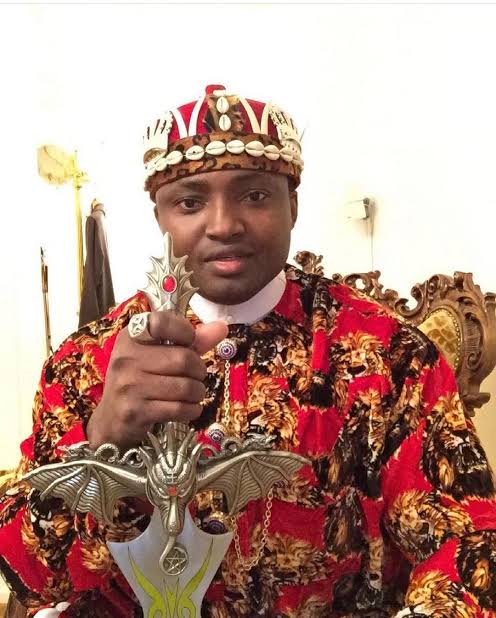The Nigerian government has announced that it is closely following the legal proceedings of Simon Ekpa, a Finnish-Nigerian citizen and leader of the proscribed Indigenous People of Biafra (IPOB), who was arrested in Finland on charges of terrorism and inciting violence.
Simon Ekpa, who has been in exile for years, was taken into custody by Finnish authorities on Thursday, November 21, 2024, and is facing serious allegations that could lead to long-term consequences for his political activities.
The Ministry of Foreign Affairs confirmed the arrest in a statement released by its acting spokesperson, Kimiebi Ebienfa, on Friday in Abuja. According to the ministry, Ekpa’s arrest came after Finnish authorities charged him with inciting terrorism and promoting violence, both of which are crimes under Finnish law.
“We confirm the arrest of Simon Ekpa, a Nigerian-Finnish citizen and a prominent leader of the proscribed IPOB, by Finnish authorities,” the statement read. “He was arrested on charges of inciting terrorism and promoting violence, following an investigation into his activities linked to separatist propaganda.”
Ekpa is a well-known political activist who declared the activation of the Biafran government in exile in 2022 and positioned himself as its leader in 2023. His role in the Biafran independence movement has drawn significant attention from both Nigerian authorities and international stakeholders.
The Finnish District Court of Päijät-Häme has ruled to detain Ekpa on probable cause, citing his involvement in spreading extremist messages via social media platforms. According to Finnish investigators, Ekpa’s online activities, including the promotion of separatism, violence, and illegal actions, were linked to disruptions in southeastern Nigeria.
The Nigerian government had long expressed concerns about Ekpa’s activities, urging Finland to take action. According to the Ministry of Foreign Affairs, the arrest follows sustained diplomatic pressure from Nigeria on Finland to address Ekpa’s role in encouraging instability in the southeastern part of Nigeria.
“Finnish authorities allege that Simon Ekpa’s social media posts fueled violence in Nigeria’s southeast,” Ebienfa added. “His online activities have caused significant unrest in the region, with reports linking him to violent incidents.”
The Nigerian government has been vocal in its efforts to clamp down on IPOB and its leaders, particularly those residing outside the country. IPOB has been designated a terrorist organization by the Nigerian government due to its calls for the secession of Biafra and its alleged involvement in violent activities in the southeast.
In light of the recent developments, the Nigerian government views the arrest as a significant step toward neutralizing the influence of IPOB and transnational actors whose activities have disrupted Nigeria’s security. The arrest also signals the government’s resolve to protect national security by addressing the threat posed by separatist movements.
“The arrest of Ekpa marks an important moment in the ongoing fight against IPOB’s destabilizing actions,” Ebienfa said. “It underscores the need for international cooperation to tackle threats to Nigeria’s peace and stability.”
The Nigerian government has made it clear that it will continue to monitor the legal proceedings closely. Ebienfa assured that further updates would be provided as the case unfolds in the Finnish courts.
“The Ministry will continue to monitor the legal proceedings and will provide further updates as the case progresses,” he confirmed.
While the Nigerian government has shown support for Ekpa’s arrest, the news has sparked mixed reactions. IPOB has distanced itself from Ekpa, with the group issuing a statement claiming that Ekpa is not a member of IPOB. Despite this denial, Ekpa’s actions have brought significant attention to the organization and its ongoing efforts to promote Biafran independence.
The arrest has also drawn interest from the international community, particularly regarding the balance between freedom of speech and national security. Ekpa’s case raises questions about the role of social media in spreading extremist views and the responsibility of governments to address such activities, even when they originate outside their borders.
The Finnish government has not yet made a statement on whether Ekpa will face a trial or be extradited to Nigeria, but his arrest is seen as a victory for the Nigerian government, which has long been critical of his role in the separatist movement.

